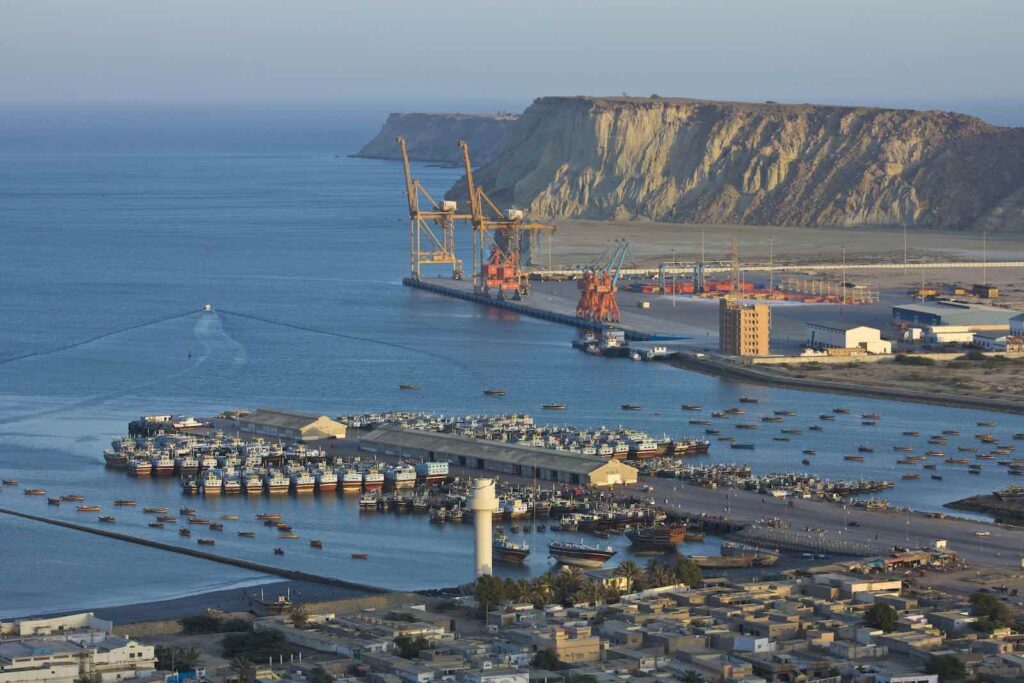- Web
- Feb 05, 2026
Pakistan aims to modernise maritime sector with string of digital reforms
-

- Web Desk Karachi
- Feb 06, 2025

KARACHI: In a significant bid to revamp its maritime sector, the government of Pakistan has launched a series of digital reforms aimed at enhancing efficiency, transparency, and economic growth. Spearheaded by the Task Force on Revamping of Pakistan’s Maritime Sector, the initiatives are set to transform the country’s ports into cutting-edge hubs for international trade, reported The News.
Pakistan’s maritime sector, anchored by key ports such as Karachi, Port Qasim, and Gwadar, plays a vital role in the nation’s economy. However, inefficiencies in port operations, outdated logistics systems, and a lack of transparency have hindered its potential for years. Recognizing these challenges, the Task Force has prioritized digitization as a cornerstone of its strategy to revitalize the sector.
To achieve this goal, the government has launched several key initiatives including:
Port Community System (PCS): A neutral electronic platform that will facilitate secure information exchange among stakeholders, rolled out in three phases to focus on vessel management, vessel operations, and service expansion.
Upgraded WeBOC System: Pakistan Customs is revamping its WeBOC system to improve efficiency and user experience, with enhancements including service identification, UI/UX improvements, API integration, and rigorous testing of new features.
Real-Time Integration of Terminal Operating Systems (TOS): All TOS will be integrated in real-time with the PCS and WeBOC to ensure seamless coordination, improve cargo handling, reduce delays, and boost overall port efficiency.
Digitization of Financial Transactions: Trade-related financial transactions will now be conducted digitally through the Pakistan Single Window (PSW), enhancing transparency and reducing corruption.
Vessel Traffic Management System (VTMS): Ports will deploy 9 core operations of vessel traffic management to monitor vessel traffic, enhance safety, and improve coordination within Pakistan’s waters.
Also read: Report unveils Pakistan’s massive untapped maritime potential
Establishment of OGAs Offices: Dedicated office spaces will be provided for Other Government Agencies to facilitate faster clearance processes and better inter-agency coordination.
Enterprise Resource Planning (ERP) Systems: Karachi Port Trust (KPT) and Port Qasim Authority (PQA) are developing advanced ERP systems to automate workflows and improve decision-making.
Business Intelligence (BI) Dashboards: The PSW is creating BI dashboards to provide policymakers with real-time data analytics, enabling informed strategic decisions.
AI-Driven Risk Management: The Risk Management System (RMS) and Integrated Risk Management System (IRMS) are being upgraded with AI and machine learning to automate risk assessment and streamline case processing.
Modernization of Port Scanners: High-tech scanners, such as Non-Intrusive Inspection (NII) Scanners, will be deployed to improve cargo inspection, enhance security, and reduce clearance times.
The Task Force believes that these initiatives will transform the sector into a key driver of national development, setting a new standard for efficiency and innovation in the region.




